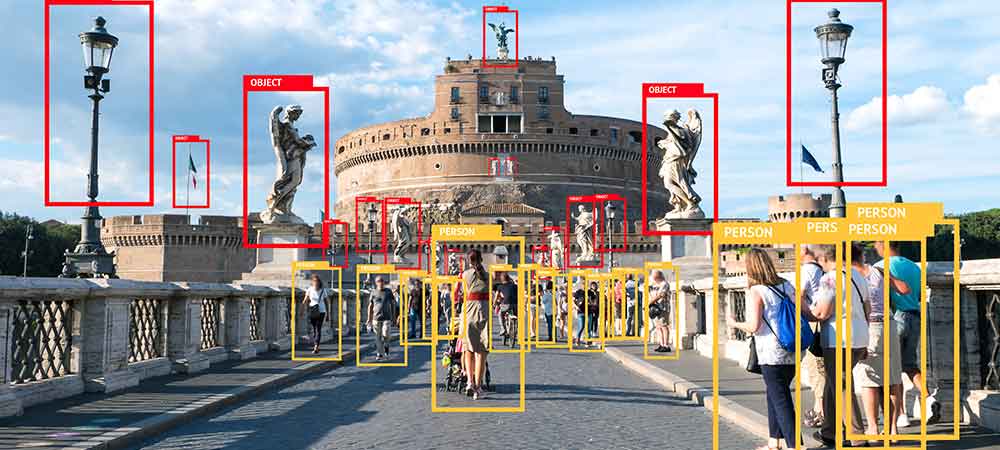Generative AI Free Course with Certificate
Generative AI for beginners
Enrol in our free Generative AI course for beginners, covering AI fundamentals, machine learning, neural networks, deep learning, and more. Dive into the world of Generative AI today!

Ratings
Level
Learning hours

Learners
Skills you will learn
About this course
Embark on this free Generative AI course of charge that offers a certificate. This educational adventure starts with the basics of Artificial Intelligence, shedding light on its constraints and hurdles. Dive into the core concepts of Machine Learning, getting to know crucial algorithms and how they are applied. The program will introduce you to Neural Networks, providing a glimpse into Deep Learning techniques such as CNNs and RNNs.
This Generative AI free course with certificate will highlight the significance of Large Language Models, showcasing their utility across different sectors. By exploring Generative Models in AI, participants will understand both their mathematical underpinnings and real-world applications. This free generative AI course initiative is designed to unfold the captivating domain of Generative AI, ensuring a rich learning experience.
Ready for more? Check out our PGP in Artificial Intelligence and Machine Learning and embark on an exciting learning journey!
Course Outline
In this module, you will learn about the evolution of AI, from its historical milestones to its classification into Narrow AI and General AI and gain insights into AI's pivotal role in Natural Language Processing and its ethical implications.
In this module, you will explore the limitations and challenges of AI, including its reliance on data quality and the crucial requirement for human intervention and judgment in the implementation and governance of AI systems."
In this module, you will delve into the fundamental concepts of machine learning, including exploring various types of machine learning, such as supervised learning, unsupervised learning, and reinforcement learning."
In this module, you will get a concise overview of machine learning algorithms, including classification algorithms, regression algorithms, and more.
In this module, you will explore the diverse applications of machine learning, including forecasting and self-driving cars. Additionally, you will also look into the challenges associated with ML algorithms.
 UPGRADE
UPGRADE
Recommended university programs
Frequently Asked Questions
Will I receive a certificate upon completing this free course?
Is this course free?
What prerequisites are required to enrol in this Generative AI course?
You do not need any prior knowledge to enrol in this Generative AI course.
How long does it take to complete this Generative AI course?
It is a 1.5 hour long course, but it is self-paced. Once you enrol, you can take your own time to complete the course.
Will I have lifetime access to the free course?
Yes, once you enrol in the course, you will have lifetime access to any of the Great Learning Academy’s free courses. You can log in and learn whenever you want to.
Generative AI for beginners
Generative Artificial Intelligence (Generative AI) is an exciting and rapidly evolving field that leverages advanced algorithms to create new and original content. From generating realistic images and text to crafting music and even designing virtual environments, Generative AI is at the forefront of technological innovation. For beginners, understanding the basics of Generative AI can open up a world of creative possibilities.
At its core, Generative AI involves machines learning patterns and structures from vast amounts of data, enabling them to generate content that resembles what they have learned. One of the most popular techniques in Generative AI is Generative Adversarial Networks (GANs), introduced by Ian Goodfellow and his colleagues in 2014. GANs consist of two neural networks – a generator and a discriminator – that are trained simultaneously through a competitive process.
The generator's role is to create content, such as images or text, while the discriminator's job is to differentiate between real and generated content. As the two networks engage in a continuous feedback loop, the generator becomes increasingly adept at producing realistic content, and the discriminator becomes better at distinguishing between the real and generated items. This dynamic interplay results in the generation of content that is often indistinguishable from what a human might produce. Image generation is one of the most visually striking applications of Generative AI. Platforms like DALL-E, developed by OpenAI, showcase the ability of AI to create images from textual descriptions. Users can input textual prompts, and the model generates unique images based on the provided criteria. This type of technology has immense potential in creative fields such as graphic design, where AI can assist artists in generating inspiration or even creating visual elements autonomously.
In the realm of text generation, OpenAI's GPT (Generative Pre-trained Transformer) models have gained significant attention. These models are trained on massive datasets, enabling them to understand context, syntax, and semantics. Users can interact with GPT models by providing prompts, and the models generate coherent and contextually relevant text in response. This has applications in content creation, chatbots, and even coding assistance, where AI can generate code snippets based on a programmer's request. Generative AI extends beyond visual and textual domains into music composition. AI systems like Magenta, developed by Google, use machine learning to understand musical patterns and generate original compositions. This opens up new possibilities for musicians and artists, allowing them to collaborate with AI to create unique and innovative pieces of music.
For beginners looking to explore Generative AI, a fundamental understanding of machine learning concepts is beneficial. Learning about neural networks, training data, and model evaluation provides a solid foundation. Numerous online resources, tutorials, and courses are available to help beginners grasp these concepts and get started on their Generative AI journey. Experimenting with pre-trained models and tools is another excellent way for beginners to dive into Generative AI without extensive technical knowledge. Platforms like Runway ML and Google Colab offer accessible interfaces for working with pre-trained models and experimenting with generative techniques.
In conclusion, Generative AI opens up a world of creative possibilities by enabling machines to generate original content across various domains. From realistic images and coherent text to musical compositions, Generative AI has the potential to revolutionize how we approach creativity and innovation. For beginners, embracing this exciting field involves understanding the underlying concepts, exploring available tools and resources, and experimenting with generative models to unleash their creative potential.






















.jpg)




















